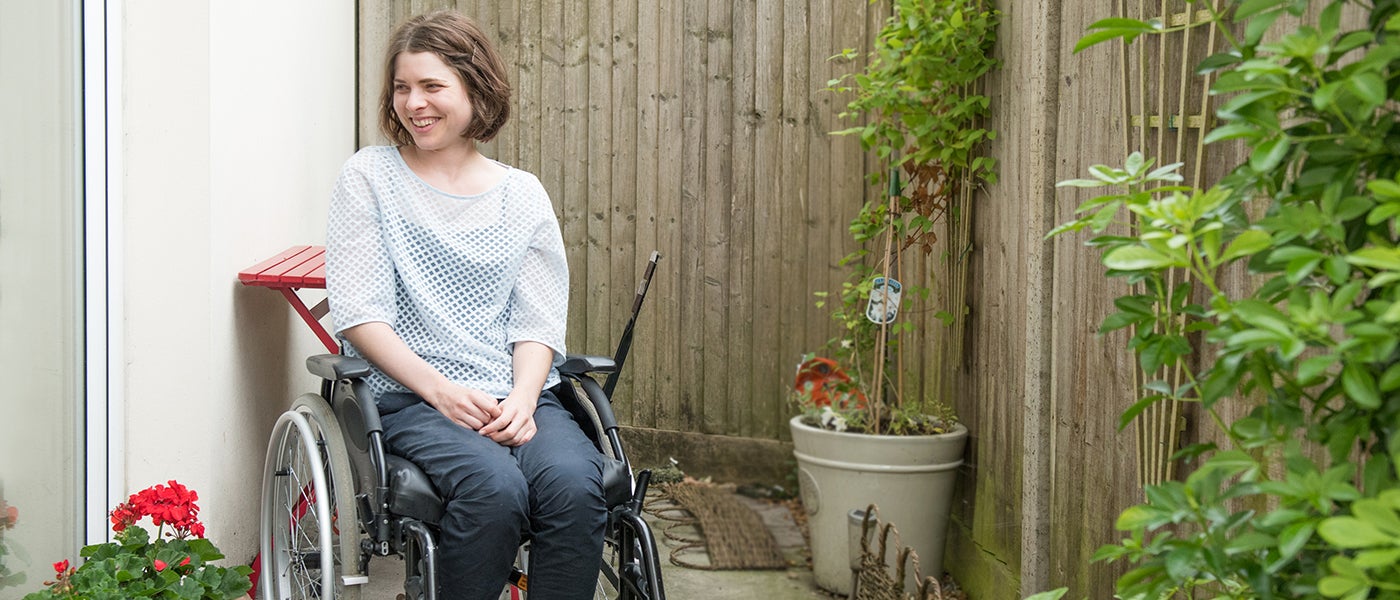- Home
- News and stories
- “Disability is full of compromises and workarounds.”
“Disability is full of compromises and workarounds.”
 2 September 2018
2 September 2018
I was diagnosed with Multiple Sclerosis when I was 16. As my condition started worsening, it was essential that I found a social care package that met my needs.
Writing about my twice daily care visits feels like trying to describe brushing my teeth, or cutting my nails. It’s boring and I aim not to focus any great deal of time on it, it’s just an essential part of daily life.
I use a wheelchair full time, but the ‘book ends’ of my day are especially hard. Lying in bed overnight, my whole body stiffens up and takes a while to stretch out and co-operate. Come evening, fatigue has turned me to jelly.
Add in flare ups, temperature variations and colds or viruses. Each day is a surprise. My carer starts by stretching my legs in bed and helping me to a sitting position. Using a standing frame I transfer to my wheelchair, and in a subsequent set of routines I get dressed and ready for my day. The process is fairly cumbersome and long winded, but we go the fastest we can, totalling around an hour.
Night calls follow a similar set of processes, all made quicker and easier if I’m having a ‘good day’, but following a routine which we know well enough to follow without fuss.
Edith
Social care is a part of my life I’d rather not have to incorporate, but fundamental for me to achieve, do, live or anything else.
My social care calls are crucial. Do I want to have company first thing in the morning? Would I love to get up and make a cup of tea then go back to bed for a few hours? What about those unexpected evenings out where one drink turns into many and you just re-adjust your 12 hour plan accordingly.
The alternative is being bed bound, in some residential home, or relying on my parents (while I can, then what?). So when it works, my social care support enables everything else.
With the essentials of personal care covered, I can focus on the rest of my life, the nights out, holidays, work, credit card bills… just life. To me social care is as necessary a part of my functioning as any of my healthcare, if not more so.
I’m frustrated by the wires I’ve had to untangle to get social care in place, the lack of transparency in funding and set up. It feels more vulnerable than the NHS and prescription meds, yet to me should be treated in the same way.
It’s all a part of my life I’d rather not have to incorporate, but fundamental for me to achieve, do, live or anything else. You can read more about my experiences on my blog.
Half of disabled people feel excluded from society and many say prejudicial attitudes haven’t improved in decades. There is still work to do until all disabled people enjoy equality and fairness, so we all need to work together to change society for the better. There’s something everyone can do to be a Disability Gamechanger so join the campaign today to end this inequality.
 2 September 2018
2 September 2018





